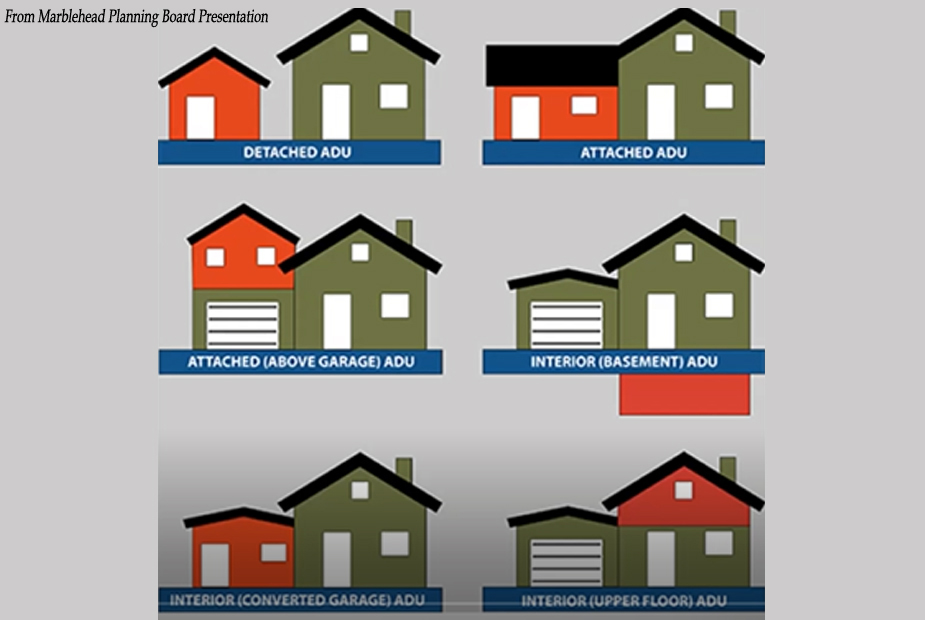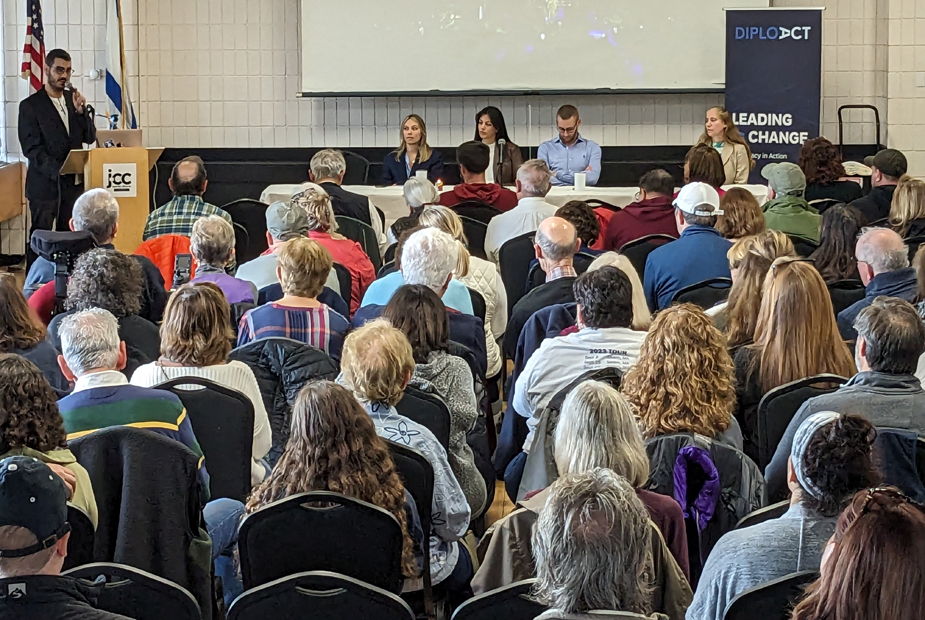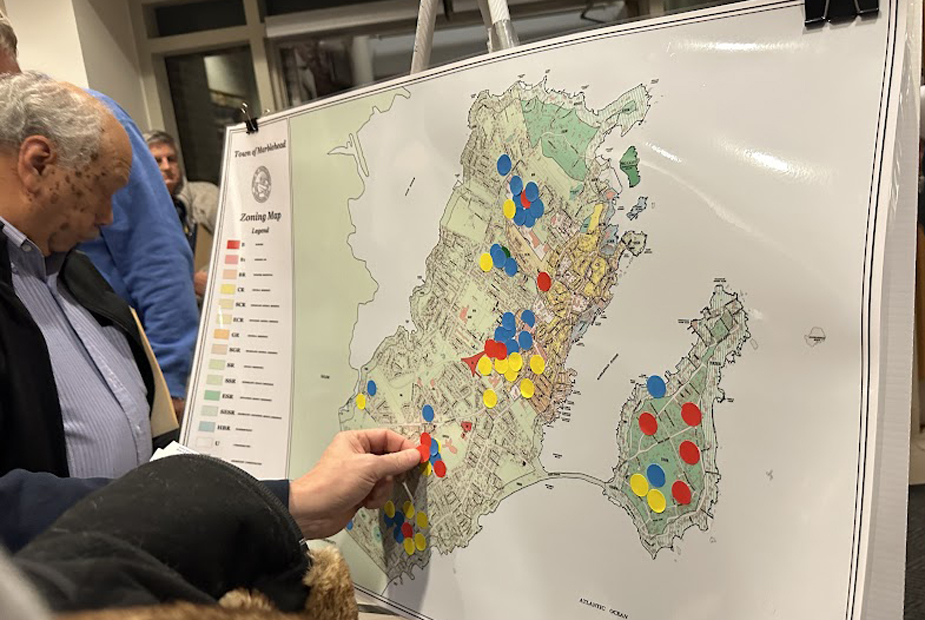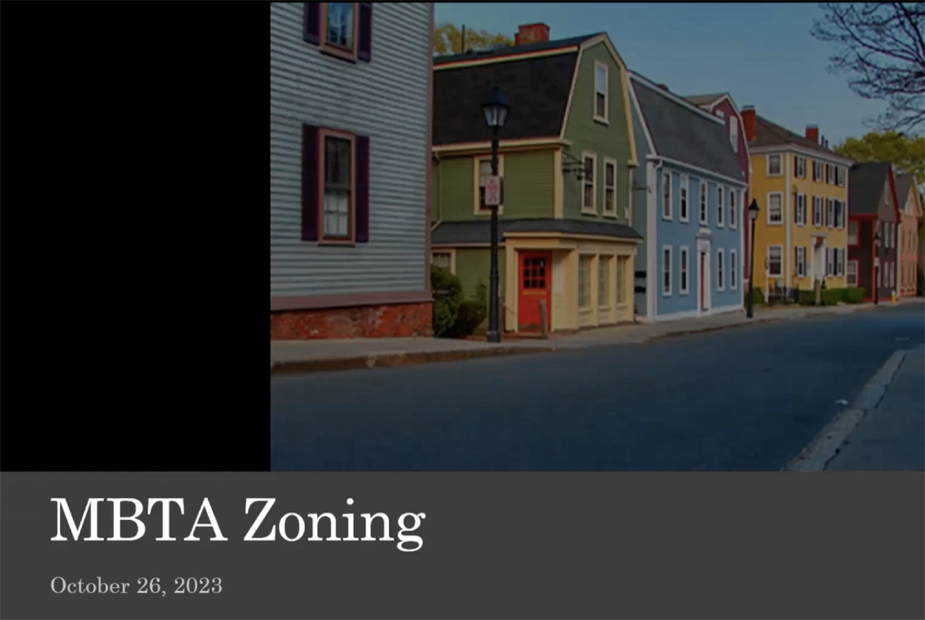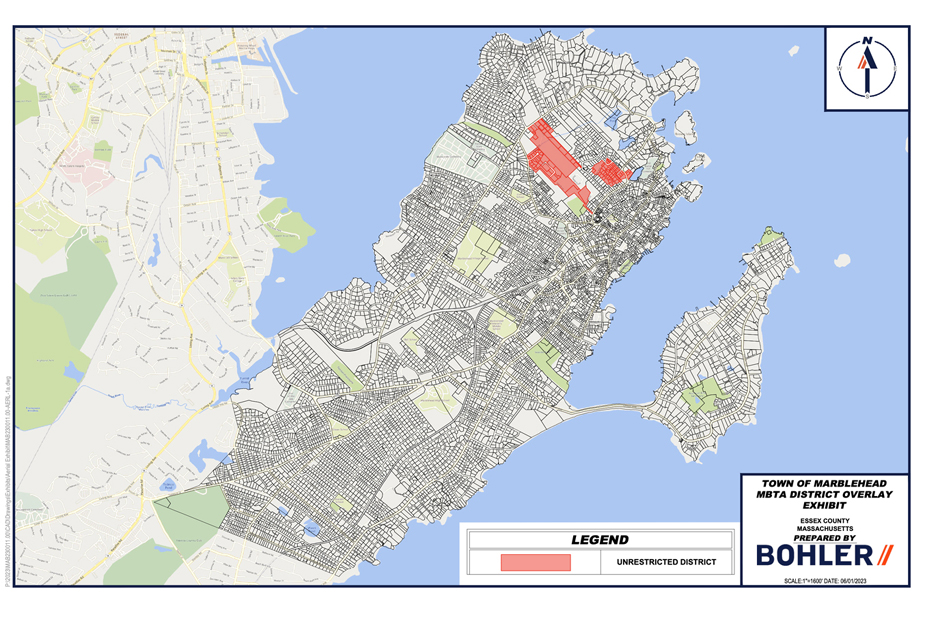Forum Participants Support ADUs for Affordable Housing and Diversity
On Tuesday, November 15, 2022, the Marblehead Planning Board held an online public forum to receive community input on a proposal to allow Accessory Dwelling Units (ADUs) to be constructed in town.
Town Planner Becky Curran Cutting was in attendance, along with Planning Board Chair Bob Schaeffner and members Ed Nilsson, Andrew Christensen, Barton Hyte, and Rosanna Ferrante, as well as associate member Steve Leverone.
ADU Overview
Schaeffner opened the presentation with an overview of ADUs and a brief discussion of the motivation behind the proposal.
An ADU is a “second small unit on the same property as a single family house.” The goal is to maintain the feeling of a single family residence, and to that end, the proposed new bylaw would include restrictions such as: only one ADU per property; owner required to occupy one of the two units; at least one parking space available per unit; units cannot be sold separately; and no short-term rentals to be allowed in either unit.
In terms of the reasons for considering ADUs at this time, Schaeffner noted that demographic data indicate that the number of people over 55 in Marblehead has increased by over 20 percent in the last 10 years. In addition, people are living longer and trying to find ways to accommodate elderly parents or adult children. Finally, the Marblehead Housing Production Plan, completed in 2020, identified ADUs as a way to create more affordable housing in the community.
The bylaw that would allow for ADUs to be constructed in Marblehead will need to be approved by Town Meeting in May 2023. It is currently in draft form, and Schaeffner emphasized that it is very much a work in progress, and the Planning Board is eager to hear feedback from the community. He also encouraged citizens to review the study on ADUs produced in 2018 by the Pioneer Institute for Public Policy Research. Of particular note is the finding that, in the 37 communities in Massachusetts that allowed ADUs at the time of the study, an average of 2.5 units are built each year.
Community Feedback
Of those who participated in the public forum, the support for ADUs was almost universal. There was a particular emphasis on incentivizing ADU construction for the purpose of increasing the availability of affordable housing in the community.
Meg Andrews, a local realtor, asked the Planning Board to “put more incentives in place to make sure these are affordable units,” noting that, in certain Marblehead neighborhoods, “there have been units under 1000 square feet that have rented for $3,000 a month, which is not an affordable rate.”
James Bixby, the Pastor at Clifton Lutheran Church, began his comments by noting how many members of his community are worried about the rates they will have to pay to stay in Marblehead. “They are getting priced out,” he said. In addition, in his role as the town’s Racial Justice Chair, he is enthusiastic about finding opportunities to gain “populations that might not have been a part of the Marblehead experience recently because the average median income for Black and Latino families in Massachusetts makes living in Marblehead very difficult, so if this could be a part of diversifying our community that would also be a boon.”
Doug Percy, a long-term member of the Marblehead Board of Assessors, expressed his concern that adding an ADU “is going to increase the value of everyone’s property, so there is going to be a tax assessment. They are going to have to pay more to get more.” Schaeffner noted that this was “a good question,” and participant Kurt James suggested that, as has been implemented in Salem, MA, ADUs could be exempt from the tax bill, offering a significant savings for property owners. It was emphasized that all of this would need to be approved at Town Meeting.
Additional comments from the community generally revolved around the interest in affordable housing and the desirability of mandating that ADUs are rented below market rate. A maximum rate of 70% of fair market value rent was mentioned several times. As an alternative, there could be a plan whereby rental units could only be made available to individuals that are at or below the average income for this area, and they could only be charged rent of up to 30 percent of this amount. The details of determining rental rates are still under consideration.
Participant Louis Meyi centered his comments on the findings of the Marblehead Housing Production Plan. Page 23 of this document, he noted, says that, “demographic data shows that Marblehead lacks the racial and ethnic diversity of the surrounding region.” He explained that this can be attributed to historical patterns of discrimination as well as the type and cost of housing in town. He urged the Planning Board to find ways to welcome to the community workers employed in restaurants, nursing homes, and other service fields, as well as the teachers and firefighters that had already been mentioned as potential beneficiaries. This, Meyi concluded, will help to address the “regrettable homogeneity of our town.”
Speaking toward the end of the public forum, Erin Noonan, a member of Marblehead’s Select Board, expressed her concern that so few ADUs have been constructed in other communities that have allowed them. Perhaps, she suggested, the restriction on short-term rentals is part of the problem because it limits potential income, and we should consider allowing for Airbnb type options, possibly with the addition of a hospitality tax. Schaeffner expressed concern about this option, saying “Most people in town are so opposed to Airbnbs that it might kill the idea, and you wouldn’t get anything.” In addition, ADU units used for short-term rentals would no longer be available to provide affordable housing options.
Schaeffner closed the meeting by noting that, while it is great to hear so much support for the ADU proposal, he is worried that there might be concerns or opposition that have not been expressed. He called for anyone in the community to come forward with their feedback so that the Planning Board can present a proposal at Town Meeting with the highest likelihood of success.
As far as next steps, the Planning Board will continue to refine the proposed ADU bylaw and plan another public forum over the next several months, with final submission for inclusion in the town warrant due by the January 2023 deadline. Town Meeting is scheduled for early May 2023.
Editor’s Note: Jennifer Schaeffner, a founding member and reporter for Marblehead Beacon, is married to Planning Board Chair Bob Schaeffner.

